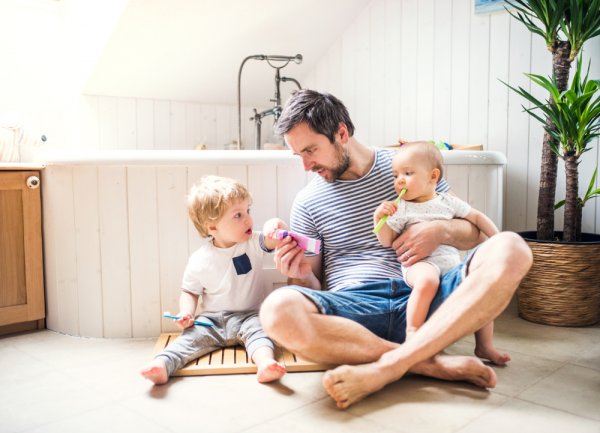COVID-19 and the compulsory regime of domestic confinement in many countries worldwide have led millions of families to deal with unprecedented and challenging circumstances. To assess the coping strategies of family members, we designed two studies to explore whether gender plays a role in crisis management responses that individuals use under mandatory domesticity. We investigated emerging and evolving household arrangements by drawing on both survey responses and the diary entries of 20 individuals over a period of three weeks.
Our research design had a dual objective. On the one hand, the survey was crucial to find out if there were any gender-related differences in how individuals made sense of the pandemic and their confinement experiences. On the other hand, diaries allowed us to gain more intimate and introspective insights into “life as it is lived” as well as the evolution of perceptions, feelings and behaviours as the crisis unfolded.
Ultimately, we wanted to see whether the current pandemic could initiate a disruption of conventional household arrangements or whether it would further perpetuate gender inequality within families.
 Our study reveals two patterns in the ways male and female household members coped with their confinement experiences. The first pattern showed that both groups reinforced their traditional gender identities by engaging in different displays of gender performativity.
Our study reveals two patterns in the ways male and female household members coped with their confinement experiences. The first pattern showed that both groups reinforced their traditional gender identities by engaging in different displays of gender performativity.
Men, for example, stressed determination, control and strength as characteristics that were required to deal with the crisis, downplayed the seriousness of the pandemic, highlighted its temporary nature and accentuated their roles as breadwinners and security providers.
Men stressed determination, control and strength as characteristics that were required to deal with the crisis, downplayed the seriousness of the pandemic and accentuated their roles as breadwinners.
Women displayed a more emotional reaction to the pandemic, confessing being anxious and willing to take on the burden of home schooling and household duties while stressing being better predisposed and endowed for nurturing and caregiving. The givenness of their self-sacrifice was a recurrent theme among female respondents. As such, both men and women intensified gender performativity during the crisis.
However, the survey and diary entries also revealed a different picture. As the crisis evolved, some individuals started to engage in radical reflexivity about their behaviour, role choices, social expectations and conditions for equality. They perceived COVID-19 as an opportunity to change and transcend traditional gender roles.
For some men and women, the pandemic facilitated agency mobilisation by opening up a path for deflection and change. They were able to act upon their long-held wish to alter their work-life balance and establish a more egalitarian household system that better reflected their personal beliefs. The increasing awareness of the need and possibility to act and conduct change highlights some potential emancipatory implications the crisis may have for some families.
 Our study shows that while normative expectations about the role of men and women in society strongly influenced their coping strategies in the early days of the crisis, over time individuals engaged in a different sensemaking process in which their own norm-breaking beliefs and needs came to surface. Through improvising, they deflected from gender performativity as a way to cope with the uncertainty inherent to the crisis and invented new ways of being that worked for them and their families.
Our study shows that while normative expectations about the role of men and women in society strongly influenced their coping strategies in the early days of the crisis, over time individuals engaged in a different sensemaking process in which their own norm-breaking beliefs and needs came to surface. Through improvising, they deflected from gender performativity as a way to cope with the uncertainty inherent to the crisis and invented new ways of being that worked for them and their families.
In sum, we aimed to shed light on the impact of COVID-19 on individual handling of the burden of work, household and caring duties within families. While the pandemic might lead to an intensification of gender roles within some families, it might over time lead to an unsustainable situation in which both men and women are obliged to reinvent themselves and the way they juggle responsibilities on multiple fronts.
We hope that COVID-19 lives up to its disruptive potential, paving the way for greater gender equality in society, starting with its smallest organisational unit – a household.
We hope that COVID-19 does not only bring loss and pain, but lives up to its disruptive potential, paving the way for greater gender equality in society, starting with its smallest organisational unit – a household.
By all means, it is important to acknowledge that the experiences of confinement of middle-class families in France is not representative of what happens in less privileged contexts. However, we think that individual responses to this crisis have a kernel of universality because, although manifestations of gendered reactions will differ from one context to another, gender expectations will still play a role in constructing these reactions.
While we can and should politicise and dispute the extent of gender performativity across various settings and groups, it does not change the fact that people will look for psychological safety in the reinforcement of familiar (and justifiable) roles and in most cases doing gender is what initially offers a sense of orientation.
It is equally important to admit that one’s background, socio-economic status and specific family circumstances will play a vital role in creating conditions that foster capacity for radical reflexivity and deflection. We hope and encourage future research to study and extend our understanding of these issues.
This article first appeared in the LSE Business Review Blog. It is republished under Creative Commons. The original article can be read here.




